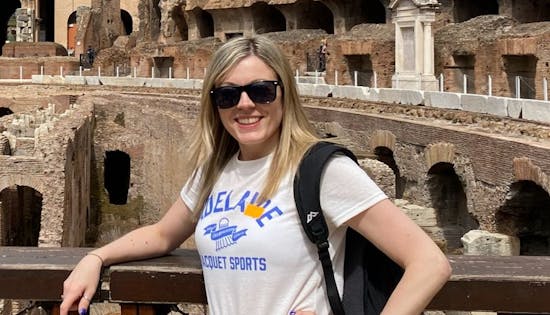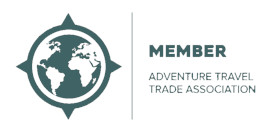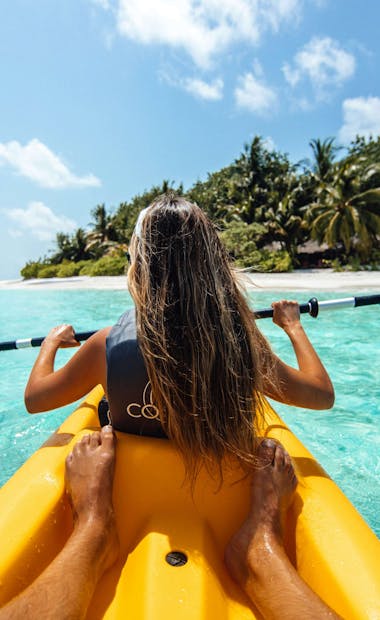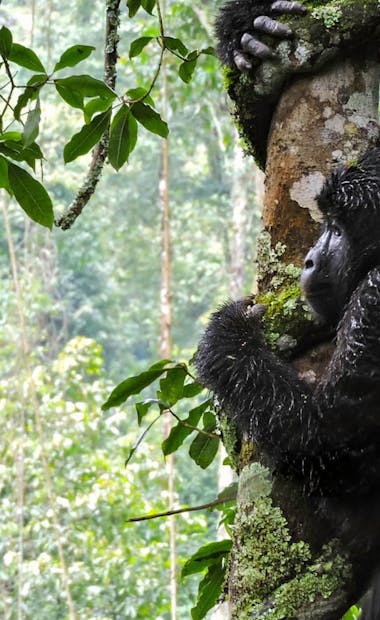
Rwanda Tours
Small Group Adventure and Touring Holidays
Popular tours
- Save26%
 View Tour
View TourJourneys: Wild Encounters in Rwanda - 8 Days
- Kigali to Kigali
- Age group: 15 - 100
- Max group size: 6
Was:£5,549From£4,120 - Save1%
 View Tour
View TourPremium Rwanda & Gorillas of Uganda - 6 Days
- Kigali to Kigali
- Age group: 15 - 99
- Max group size: 12
Was:£4,490From£4,445 - Save21%
 View Tour
View TourUganda to Rwanda: Gorilla Treks & Safari Drives - 8 Days
- Kampala to Kigali
- Age group: 15 - 100
- Max group size: 12
Was:£3,449From£2,732 - Save1%
 View Tour
View TourRemarkable Rwanda & Gorillas of Uganda - 9 Days
- Kigali to Kigali
- Age group: 15 - 99
- Max group size: 12
Was:£3,770From£3,732 - Save1%
 View Tour
View TourMasai Mara & Gorilla Adventure - 12 Days
- Nairobi to Kigali
- Age group: 15 - 100
- Max group size: 12
Was:£5,149From£5,098 - Save1%
 View Tour
View TourEast Africa In-Depth - 16 Days
- Nairobi to Kigali
- Age group: 15 - 100
- Max group size: 14
Was:£5,499From£5,444
Rwanda Tours
Welcome to the captivating land of Rwanda, a hidden gem in East Africa that beckons adventurous souls and nature enthusiasts alike. Embark on a journey of discovery with our exclusive Rwanda tours and holidays, as we unveil the breathtaking beauty and rich cultural tapestry of this extraordinary destination.
Rwanda, often referred to as the "Land of a Thousand Hills," boasts a diverse range of attractions that promise to leave a lasting imprint on your heart. From the misty peaks of the Virunga Mountains to the lush green valleys and shimmering lakes, Rwanda offers a remarkable blend of natural wonders and compelling history.
One of the main draws of Rwanda is undoubtedly its awe-inspiring population of endangered mountain gorillas. Trek through the dense forests of Volcanoes National Park, accompanied by experienced guides, and find yourself face-to-face with these magnificent creatures in their natural habitat. The intimate encounters and poignant connections forged with these gentle giants will forever remain etched in your memory.
But Rwanda has more to offer than its primate inhabitants. Immerse yourself in the pristine beauty of Nyungwe Forest National Park, a haven for biodiversity and a paradise for nature lovers. Trek through lush trails, witness cascading waterfalls, and encounter rare species of primates and colorful birds. This enchanting forest is a sanctuary for exploration and serenity.
For history enthusiasts, a visit to the solemn Genocide Memorial Sites is a poignant reminder of Rwanda's turbulent past and its remarkable journey towards healing and reconciliation. Pay homage to the lives lost during the 1994 genocide against the Tutsi and gain a deeper understanding of the nation's resilience and strength.
As you traverse Rwanda's verdant landscapes, be captivated by the sparkling blue waters of Lake Kivu. This magnificent lake offers a tranquil escape where you can indulge in various water activities, including swimming, kayaking, and sunset boat cruises. Discover the charming lakeside towns, immerse yourself in the local culture, and savor delicious Rwandan cuisine infused with flavors from neighboring countries.
In the vibrant capital city of Kigali, you'll encounter a dynamic blend of modernity and tradition. Explore bustling markets, art galleries, and museums that showcase Rwanda's vibrant arts scene and cultural heritage. Delve into the rhythmic beats of traditional music and witness captivating dance performances that celebrate the country's rich cultural diversity.
Rwanda's charm lies not only in its natural wonders and cultural heritage but also in the warmth and hospitality of its people. Engage with local communities, participate in traditional ceremonies, and gain insights into the daily lives of the Rwandan people. Their resilience and welcoming spirit will leave an indelible mark on your journey.
Prepare to be enchanted by Rwanda's unparalleled beauty, from its mist-shrouded mountains to its emerald green valleys. Embark on an unforgettable adventure with our Rwanda tours and holidays, curated to immerse you in the country's wonders and create lifelong memories. Discover a land where nature and humanity harmoniously coexist, and be inspired by Rwanda's remarkable story of triumph and renewal.
Book your Rwanda expedition today and unlock the secrets of this captivating African destination. Let Rwanda embrace you with its natural splendor, cultural treasures, and warm hospitality, inviting you to fall in love with its timeless allure.
When is the best time to visit Rwanda?
The best time to visit Rwanda largely depends on your preferences and the activities you wish to engage in. Rwanda enjoys a pleasant climate throughout the year, but there are a few factors to consider when planning your trip.
The dry season, which extends from June to September, is considered the best time to visit Rwanda. During this period, the weather is generally dry, with mild temperatures and lower humidity. These conditions make it easier to trek through the forests in search of mountain gorillas or explore other national parks. The dry season is also ideal for outdoor activities, as the trails are less muddy and more accessible.
Another favorable time to visit Rwanda is during the short dry season from December to February. This period offers similar weather conditions to the June-September period, making it a good alternative if you prefer to travel during the Northern Hemisphere's winter months.
It's important to note that Rwanda experiences two rainy seasons: the long rains from mid-March to May and the short rains from October to early December. While these seasons bring occasional showers, they can also contribute to lush green landscapes and fewer crowds. If you don't mind some rainfall and wish to experience Rwanda's stunning scenery at its most vibrant, visiting during the rainy season can be a rewarding option.
Regardless of the season, it's advisable to check the specific weather conditions for your intended destinations within Rwanda, as the climate can vary across the country due to variations in altitude and geography.
Lastly, if your primary focus is gorilla trekking, it's important to note that gorilla permits are limited and in high demand throughout the year. It is recommended to secure your permits well in advance, regardless of the season you plan to visit.
Ultimately, the best time to visit Rwanda depends on your preferences and the experiences you seek. Whether you choose the dry season for optimal trekking conditions or the rainy season for its lush landscapes, Rwanda's natural wonders and vibrant culture are sure to leave an indelible mark on your journey.
Will I need a visa to travel to Rwanda?
Yes, most travelers visiting Rwanda will require a visa to enter the country. However, Rwanda has implemented an electronic visa system, which makes the application process convenient and efficient.
Here are the main types of visas available for travelers to Rwanda:
Tourist Visa: This visa is suitable for travelers visiting Rwanda for tourism purposes, including sightseeing, wildlife safaris, and cultural exploration.
Business Visa: If you're traveling to Rwanda for business-related activities, such as attending conferences, meetings, or trade events, a business visa is required.
Transit Visa: If you have a layover in Rwanda and plan to leave the airport during your transit, you will need a transit visa.
The easiest way to obtain a Rwandan visa is through the online e-visa system. You can apply for an e-visa on the official website of the Rwanda Directorate General of Immigration and Emigration. The process typically requires filling out an application form, providing necessary documents (such as a passport copy, travel itinerary, and a recent passport-sized photo), and paying the applicable visa fee online. Once approved, you will receive an electronic visa that you can print and present upon arrival in Rwanda.
It's important to note that visa requirements and fees may vary based on your nationality, so it's recommended to check the specific visa requirements for your country before planning your trip to Rwanda. Additionally, ensure that your passport is valid for at least six months beyond your planned departure date from Rwanda.
For travelers who are not eligible for an e-visa or prefer to obtain their visa upon arrival, Rwanda also offers visa-on-arrival services at major entry points, including Kigali International Airport. However, it is generally recommended to apply for an e-visa in advance to save time and ensure a smooth entry process.
Always double-check the latest visa requirements and regulations with the Rwandan embassy or consulate in your country of residence before traveling to Rwanda to ensure a hassle-free journey.
What are the must see destinations in Rwanda?
Rwanda is a country of remarkable natural beauty and cultural heritage, offering a variety of must-see destinations for travelers. Here are some of the top attractions in Rwanda:
Volcanoes National Park: Located in the Virunga Mountains, Volcanoes National Park is famous for its population of endangered mountain gorillas. Trekking through the lush forests to observe these gentle giants in their natural habitat is an unforgettable experience.
Nyungwe Forest National Park: This pristine rainforest is a haven for biodiversity, with a vast array of flora and fauna. Explore the extensive network of trails, encounter chimpanzees, monkeys, and rare bird species, and immerse yourself in the serene beauty of this ancient forest.
Lake Kivu: Nestled between Rwanda and the Democratic Republic of Congo, Lake Kivu is a picturesque freshwater lake with stunning views and tranquil surroundings. Relax on its sandy beaches, take a boat trip to explore the islands, or engage in water sports like kayaking and fishing.
Akagera National Park: Experience the African savannah at Akagera National Park, where you can embark on thrilling game drives to spot a diverse range of wildlife, including elephants, giraffes, zebras, lions, and hippos. The park's scenic landscapes and abundant wildlife make it a must-visit destination.
Kigali: Rwanda's vibrant capital city, Kigali, offers a unique blend of modernity and rich cultural heritage. Explore the city's bustling markets, visit poignant genocide memorial sites to gain insight into Rwanda's history, and indulge in the local arts scene and delicious Rwandan cuisine.
Musanze Caves: Delve into the underground world of Musanze Caves, a fascinating network of caves formed by ancient lava flows. Explore the eerie chambers, learn about their geological significance, and witness impressive rock formations.
Butare: This cultural hub in southern Rwanda is home to the National Museum of Rwanda, which offers a comprehensive insight into the country's history, traditions, and cultural artifacts. Immerse yourself in the vibrant local culture and visit nearby traditional villages to experience Rwandan rural life.
Rubavu: Located on the shores of Lake Kivu, Rubavu is a charming lakeside town with stunning views and a relaxed atmosphere. Enjoy the beautiful beaches, indulge in water activities, and savor the fresh local seafood.
These are just a few highlights of the many captivating destinations Rwanda has to offer. Each place provides a unique and enriching experience, whether it's encountering gorillas in Volcanoes National Park, exploring the diverse wildlife of Akagera National Park, or immersing yourself in the rich cultural heritage of Kigali. Prepare to be amazed by Rwanda's natural wonders, warm hospitality, and the resilience of its people.
What is the local currency in Rwanda, and can I use credit cards?
The local currency of Rwanda is the Rwandan franc (RWF). When traveling to Rwanda, it's advisable to carry some local currency for small purchases, especially in rural areas and local markets. You can exchange foreign currency into Rwandan francs at banks, exchange offices, and authorized forex bureaus in major cities and towns.
Credit cards, particularly Visa and Mastercard, are widely accepted in larger establishments such as hotels, restaurants, and major retailers in urban areas like Kigali. However, it's always recommended to carry some cash as backup, as smaller establishments and rural areas may have limited or no card payment facilities.
ATMs are available in major cities and towns, allowing you to withdraw cash in Rwandan francs using your international debit or credit card. It's advisable to notify your bank or card issuer in advance about your travel plans to Rwanda to avoid any issues with card transactions.
While credit cards are convenient for larger purchases and in urban areas, it's essential to have some cash on hand for smaller expenses, rural areas, and when visiting local markets, where cash is often the preferred payment method.
Remember to keep your currency exchange receipts if you plan to convert any remaining Rwandan francs back into foreign currency before leaving the country, as this may be required for the exchange process.
It's also worth noting that US dollars are widely accepted in Rwanda, particularly in tourist areas, and can be used for certain transactions and larger purchases. However, it's advisable to carry small denominations of US dollars in good condition, as older or damaged bills may not be accepted.
Always exercise caution when using your credit card or handling cash, and keep an eye on your belongings to ensure a safe and secure travel experience in Rwanda.
Is Rwanda a good family holiday destination?
Absolutely! Rwanda can be a fantastic family holiday destination with plenty to offer for travelers of all ages. Here are some reasons why Rwanda is a great choice for a family vacation:
Wildlife Experiences: Rwanda is renowned for its incredible wildlife, especially the mountain gorillas. Going on a gorilla trekking adventure with your family can be an unforgettable and educational experience, allowing children to observe these gentle giants in their natural habitat. Additionally, other national parks like Akagera offer opportunities to see a diverse range of wildlife, including elephants, giraffes, zebras, and more.
Cultural Immersion: Rwanda has a rich cultural heritage, and families can engage in cultural activities to learn about the traditions, music, dance, and cuisine of the Rwandan people. Visiting local villages, participating in traditional ceremonies, and exploring cultural centers can provide valuable insights into the local way of life.
Safe and Welcoming Environment: Rwanda is known for its safety and hospitality, making it an ideal destination for families. The country has made significant progress in terms of security and infrastructure, ensuring a comfortable and secure experience for travelers. Rwandans are generally warm and friendly, and families will feel welcomed and supported during their visit.
Educational Opportunities: Rwanda's history, particularly the genocide memorial sites, can provide important lessons for older children and teenagers. These sites offer educational opportunities to learn about Rwanda's past and its journey towards reconciliation and growth. Additionally, wildlife encounters and visits to national parks can foster a love for nature and conservation in younger children.
Outdoor Adventure: Rwanda's stunning landscapes, including mountains, lakes, and forests, offer numerous outdoor activities for families. From hiking to scenic viewpoints, kayaking on Lake Kivu, or exploring nature trails, there are plenty of opportunities for active and adventurous experiences.
Family-Friendly Accommodation: Rwanda offers a range of family-friendly accommodation options, including hotels, lodges, and resorts that cater to the needs of families. Many establishments provide amenities such as spacious rooms, swimming pools, and recreational facilities to ensure a comfortable stay.
Cultural and Educational Programs: Various organizations and tour operators in Rwanda offer family-oriented programs and activities designed to engage children and promote cultural understanding. These programs may include interactive workshops, storytelling sessions, and hands-on experiences that make learning fun for the whole family.
Overall, Rwanda's combination of wildlife, cultural experiences, safety, and educational opportunities make it an excellent choice for a family holiday. It provides a unique blend of adventure, learning, and cultural immersion that can create lasting memories for your family.
Is Rwanda a good destination for solo travellers?
Absolutely! Rwanda is a wonderful destination for solo travelers, offering a unique and enriching experience. Here's why Rwanda is a great choice for solo travelers:
Warm Hospitality: Rwandans are known for their warm hospitality and friendly nature, making solo travelers feel welcome and supported throughout their journey. The local people are often eager to engage in conversation, share their culture, and provide assistance when needed, creating a welcoming environment for solo adventurers.
Safety and Security: Rwanda is considered one of the safest countries in Africa, with low crime rates and a stable political environment. Solo travelers can explore the country with peace of mind, knowing that their safety is prioritized. However, as with any destination, it's important to exercise standard precautions and be aware of your surroundings.
Cultural Experiences: Solo travel allows you to immerse yourself in the local culture and connect with the people of Rwanda on a deeper level. Engaging with local communities, visiting traditional villages, and participating in cultural activities can provide a rich and authentic experience that may be easier to access when traveling alone.
Wildlife Encounters: Rwanda is renowned for its mountain gorillas, and solo travelers can embark on a gorilla trekking adventure to observe these magnificent creatures up close. The experience of encountering gorillas in their natural habitat is both humbling and awe-inspiring, and doing it alone allows for a personal and immersive connection with nature.
Stunning Landscapes: From the rolling hills of the countryside to the serene lakes and national parks, Rwanda offers breathtaking landscapes that are perfect for solo exploration. Whether it's hiking through lush forests, gazing at panoramic views, or embarking on wildlife safaris, solo travelers can indulge in the natural beauty of Rwanda at their own pace.
Outdoor Adventures: For those seeking adventure, Rwanda has plenty to offer. You can go trekking in the volcanoes, explore the rainforests, or take part in water activities on the beautiful lakes. Solo travelers have the flexibility to choose their preferred activities and create their own adventure itinerary.
Engaging History: Rwanda's history, including the tragic events of the genocide, can be explored through memorial sites and museums. Solo travelers have the opportunity to gain a deeper understanding of Rwanda's past, witness the country's remarkable progress, and engage in meaningful conversations with locals, creating a profound and educational experience.
Whether you're seeking wildlife encounters, cultural immersion, outdoor adventures, or reflective experiences, Rwanda offers a range of opportunities for solo travelers. Embrace the freedom of solo exploration, connect with the local community, and create memories that will last a lifetime in this remarkable East African destination.
Is Rwanda a safe destination?
Yes, Rwanda is generally considered a safe destination for travelers. The country has made significant strides in ensuring safety and stability, particularly in the years following the 1994 genocide. Rwanda has implemented strict security measures and has a low crime rate compared to many other countries in the region.
The Rwandan government places a strong emphasis on security and has taken proactive steps to promote safety and protect both its citizens and visitors. There is a visible police presence in major cities and tourist areas, which helps maintain a sense of security.
However, as with any travel destination, it's important to exercise common-sense precautions to ensure your safety. Here are a few tips to consider when visiting Rwanda:
Stay Informed: Stay updated on the latest travel advisories and follow any recommendations or guidelines issued by your embassy or relevant authorities.
Use Reliable Transportation: Opt for reputable transportation options such as registered taxis or pre-arranged transfers when moving around, particularly at night or in unfamiliar areas.
Secure Your Belongings: Keep your personal belongings secure and be mindful of your surroundings, especially in crowded places or tourist areas. Avoid displaying valuable items openly.
Respect Local Customs and Traditions: Familiarize yourself with local customs and cultural norms to show respect to the local community. This can help foster positive interactions and enhance your overall experience.
Take Precautions in Nature Reserves: When visiting national parks or engaging in outdoor activities, follow the guidance of park rangers and guides for your safety and the preservation of wildlife.
It's always recommended to purchase travel insurance that covers medical emergencies, trip cancellation, and personal belongings. Additionally, informing your embassy or consulate of your travel plans is a good precautionary measure.
By following these general safety guidelines, being aware of your surroundings, and using common sense, you can have a safe and enjoyable experience while exploring the beauty and cultural richness of Rwanda.
Will I require any vaccinations to travel to Rwanda?
Yes, certain vaccinations are recommended for travelers visiting Rwanda to protect against various diseases. It's essential to consult with a healthcare professional or a travel health clinic well in advance of your trip to receive up-to-date and personalized medical advice. Here are some commonly recommended vaccinations for Rwanda:
Yellow Fever: A yellow fever vaccination is mandatory for entering Rwanda. You will need to provide a valid yellow fever vaccination certificate upon arrival, so ensure you are vaccinated at least 10 days before your trip.
Routine Vaccinations: Make sure your routine vaccinations are up to date, including measles, mumps, rubella (MMR), diphtheria, tetanus, pertussis (DTaP), polio, and influenza.
Hepatitis A: This vaccination is recommended as Rwanda is considered a destination with a moderate risk of hepatitis A. The disease can be contracted through contaminated food and water.
Typhoid: Typhoid fever can be contracted through contaminated food and water in Rwanda. A typhoid vaccination is recommended for travelers, especially those who plan to eat outside of major hotels and restaurants.
Hepatitis B: This vaccination is recommended for long-term travelers, those who may require medical treatments, or individuals engaging in activities that may expose them to bodily fluids or blood.
Meningitis: Depending on the time of year and specific travel plans, a meningitis vaccination may be recommended. It's particularly relevant if you plan to visit during the dry and dusty season.
Rabies: If you anticipate coming into close contact with animals or plan activities such as wildlife encounters or extended outdoor stays, a rabies vaccination may be recommended. However, this is a personal decision and should be discussed with a healthcare professional.
Please note that this is not an exhaustive list, and additional vaccinations may be recommended based on your individual health, medical history, and travel itinerary. It's important to consult with a healthcare professional or travel health clinic to receive personalized advice and the most up-to-date information regarding vaccinations for your specific trip to Rwanda.
How does the rooming work on tours?
Small group tours in Rwanda typically involve a set itinerary where you travel with a group of fellow travellers and a tour leader/guide. Accommodation arrangements vary depending on the specific tour you choose. Here are some common aspects of rooming arrangements on small group tours:
Shared Rooms: In order to promote camaraderie and facilitate interaction among group members, most tours arrange shared accommodation. This means you will be paired with another member of the same gender from the group to share a room. Roommates may sometimes change periodically throughout the tour.
Single Supplement: If you prefer to have your own room and privacy, you may have the option to pay a single supplement fee. This additional fee allows you to have your own room for the duration of the tour. However, please note that single supplements can vary in cost and availability.
Roommate Matching: Tour operators usually offer roommate matching services, where they try to pair you with a suitable roommate based on your preferences, such as age range. This can help ensure compatibility and a more enjoyable experience for all participants.
Rooming Preferences: When booking your small group tour, it's important to communicate your rooming preferences to the tour operator. If you have specific requirements or preferences, such as sharing with a friend or a specific roommate request, it's advisable to inform the tour operator during the booking process.
It's important to carefully read the tour details and inclusions provided by the tour operator to understand their specific rooming policies. If having your own room is a priority, make sure to inquire about the availability of single supplements and any associated costs before booking your tour.
Keep in mind that while sharing a room with a fellow traveller can be a great way to meet new people and build connections, having your own room provides more privacy and flexibility. Consider your preferences and the dynamics of the tour when deciding whether to opt for a shared room or pay for a single supplement.
Remember to communicate your needs and preferences clearly with the tour operator during the booking process to ensure a comfortable and enjoyable accommodation experience on your small group tour in Rwanda.
What is the food like in Rwanda?
Rwandan cuisine is diverse, flavorful, and influenced by a combination of traditional, regional, and international flavors. Here are some key aspects of the food in Rwanda:
Staple Foods: The Rwandan diet typically revolves around staple foods such as bananas, plantains, beans, sweet potatoes, corn, and cassava. These ingredients form the basis of many dishes and provide a filling and nutritious component to meals.
Ugali: Ugali, also known as bugali or posho, is a common staple in Rwanda and many other African countries. It is a thick porridge made from maize flour or cassava flour. Ugali is often served alongside stews, vegetables, or meat dishes.
Beans and Legumes: Beans are a significant part of Rwandan cuisine. They are prepared in various ways, including boiled, mashed, or as a base for soups and stews. Red kidney beans, black-eyed peas, and cowpeas are commonly used.
Grilled Meats: Grilled meat, particularly goat, is popular in Rwanda. Nyama choma, which means "grilled meat" in Swahili, is a favorite dish enjoyed by locals and visitors alike. It is often served with vegetables and sometimes accompanied by a spicy sauce.
Isombe: Isombe is a traditional Rwandan dish made from cassava leaves or spinach cooked with onions, garlic, and spices. It is often served with beans, meat, or fish and accompanied by a side of plantains or ugali.
Brochettes: Brochettes are skewered meats, similar to kebabs, that are commonly found in Rwandan cuisine. They are typically made with beef, goat, chicken, or fish, marinated with spices, and grilled to perfection. Brochettes are often enjoyed as a street food snack or as part of a larger meal.
Fruit and Vegetables: Rwanda's tropical climate allows for the cultivation of a variety of fruits and vegetables. Fresh and juicy mangoes, pineapples, papayas, passion fruit, avocados, and bananas are plentiful and make for refreshing snacks or dessert options.
Chapati: Although not native to Rwanda, chapati, a type of Indian flatbread, has become popular in the country. It is often served alongside stews or curries and is a delicious addition to a Rwandan meal.
Inyama ibirayi: Inyama ibirayi is a traditional Rwandan dish consisting of smoked and sun-dried meat. It is a preservation method used to ensure the availability of meat during the dry season. The meat is usually rehydrated and cooked with vegetables and spices before serving.
Rwandan cuisine offers a delightful mix of flavors, textures, and aromas. Whether you're savoring a hearty plate of beans and ugali, enjoying grilled meats with local spices, or sampling the vibrant tropical fruits, Rwandan food will surely provide a unique culinary experience during your visit.
Can I drink the tap water in Rwanda?
It is generally not recommended to drink tap water in Rwanda. While efforts have been made to improve water quality and access to safe drinking water, it's still advisable for visitors to exercise caution and rely on bottled water or properly treated water sources.
To ensure safe drinking water during your stay in Rwanda, consider the following options:
Bottled Water: The most convenient and widely available option is to purchase bottled water from reputable brands or stores. Make sure the seal is intact before consuming.
Filtered or Boiled Water: If you prefer to minimize plastic waste, you can use water filters or purification tablets to treat tap water. Boiling water for at least one minute is also effective in killing most harmful bacteria and viruses.
Water Dispensers: Some accommodations and establishments may have water dispensers that provide filtered or purified water. Confirm the source and filtration methods before using them.
Avoid Ice and Raw Produce: When dining out, be cautious about consuming ice cubes in drinks and opting for cooked food over raw fruits and vegetables, as these may have been washed with tap water.
It's important to note that personal hygiene practices should also consider using safe water sources. Use bottled or treated water for brushing your teeth and avoid swallowing water while showering or swimming.
By taking these precautions and being mindful of the water you consume, you can minimize the risk of waterborne illnesses and have a more enjoyable and healthy trip to Rwanda.
Are there any cultural norms in Rwanda I should follow?
Yes, Rwanda has its own cultural norms and customs that visitors should be aware of and respect during their stay. Here are some key cultural norms in Rwanda:
Greeting and Respect: Rwandans place great importance on greetings and showing respect. When meeting someone, it is customary to shake hands and exchange greetings. Use proper greetings like "Muraho" (hello) and "Amakuru" (how are you?). It is also polite to address people using their titles or names preceded by "Mister" or "Madam."
Dress Code: Rwanda is a relatively conservative country, and modesty in dress is appreciated, especially in rural areas and religious sites. It is advisable to dress modestly, avoiding revealing or provocative clothing. In more formal settings, such as business or official meetings, smart attire is expected.
Punctuality: Rwandans value punctuality and expect others to be on time for scheduled appointments and meetings. It is considered respectful to arrive on time or inform the host in advance if you are running late.
Politeness and Etiquette: Politeness is highly regarded in Rwandan culture. Use polite phrases such as "thank you" ("murakoze") and "please" ("ngoza"). Avoid interrupting others while they are speaking and maintain a respectful tone in conversations.
Cultural Sites and Religious Places: When visiting cultural sites, such as traditional villages or religious places, it is important to respect local customs and follow any guidelines provided by guides or local authorities. Ask for permission before taking photographs, and be mindful of your behavior to avoid causing offense.
Food Etiquette: Rwandan meals often involve communal eating. If invited to someone's home for a meal, it is customary to wash your hands before eating. Use your right hand to eat, as the left hand is considered unclean. Accept food and drink offerings with your right hand as a sign of respect.
Conservation and Environmental Respect: Rwanda is known for its commitment to environmental conservation. When visiting national parks or natural areas, follow the rules and regulations set by park authorities. Respect wildlife and their habitats by maintaining a safe distance and avoiding any actions that may disturb or harm them.
Language: The official languages of Rwanda are Kinyarwanda, French, and English. While English is widely spoken, making an effort to learn a few basic Kinyarwanda phrases like greetings and expressions of gratitude can be appreciated by locals and help you connect with the culture.
By respecting and observing these cultural norms, you will not only show appreciation for Rwandan traditions but also enhance your interactions with the local people, fostering a positive cultural exchange during your visit to Rwanda.
What should I pack for a trip to Rwanda?
When packing for a trip to Rwanda, it's important to consider the country's climate, activities, and cultural norms. Here's a list of essential items to pack:
Clothing:
- Lightweight, breathable clothing for warm weather, including T-shirts, shorts, and skirts.
- Long-sleeved shirts and pants for protection against mosquitoes and cool evenings.
- A lightweight jacket or sweater for cooler temperatures, especially at higher altitudes.
- A waterproof jacket or rain poncho, as Rwanda can experience rain showers throughout the year.
- Comfortable walking shoes or hiking boots for outdoor activities.
- Swimwear if you plan to visit lakes or swimming pools.
- A hat or cap to protect yourself from the sun.
- A scarf or shawl for modesty, as some cultural sites may require covering shoulders or heads.
Travel Documents and Essentials:
- Valid passport with at least six months' validity remaining.
- Visa (if required) and other necessary travel documents.
- Travel insurance documents and emergency contact numbers.
- Money, including local currency (Rwandan Francs) and a small amount of US dollars for emergencies.
- International power adapter for charging electronic devices.
- A photocopy or digital copy of important documents like your passport, visa, and travel insurance.
Health and Safety:
- Prescription medications, along with a copy of the prescription or a doctor's note.
- Personal first aid kit, including basic medications, bandages, and any necessary supplies.
- Insect repellent containing DEET to protect against mosquitoes.
- Sunscreen with a high SPF for sun protection.
- Hand sanitizer or wet wipes for maintaining hygiene.
- Water purification tablets or a water filter bottle for clean drinking water.
- Basic toiletries and any specific personal care items you may need.
Electronics and Miscellaneous:
- Camera or smartphone for capturing memories.
- Binoculars for wildlife viewing and birdwatching.
- Portable charger/power bank to keep your devices charged on the go.
- Lightweight daypack or backpack for day trips and excursions.
- Travel guidebook or map for reference and navigation.
- Comfortable travel pillow and eye mask for long journeys.
Remember to pack according to the specific activities you plan to undertake, such as hiking gear or appropriate attire for gorilla trekking if included in your itinerary. Additionally, consider packing some small gifts or souvenirs from your home country, which can be a thoughtful gesture when meeting locals or staying in rural communities.
It's always a good idea to check the weather forecast before your trip and consult with your tour operator or travel agency for any specific packing recommendations based on the season and activities planned.
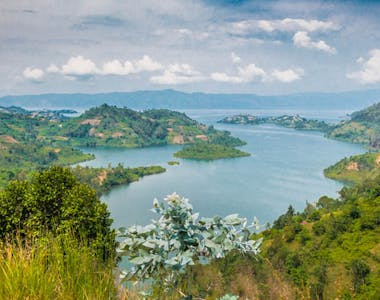
Book With Confidence
Monthly Payments
Spread the costs with no interest or additional fees
Best Price Guarantee
We won't be beaten on price. If you find this adventure at a lower price please get in touch!
Reserve now & pay later
Reserve your adventure today and pay later, free of charge
ATOL protected
Book with confidence
Hold your space today, for free
or book your trip with a deposit and then pay the rest in instalments.
Reserve your flights with us
Add flights to your booking and we'll take care of the rest. You'll get 24/7 support from our team & ATOL protection.
Speak to our experts
Call or email our expert team to find out more and help with ideas and planning.
